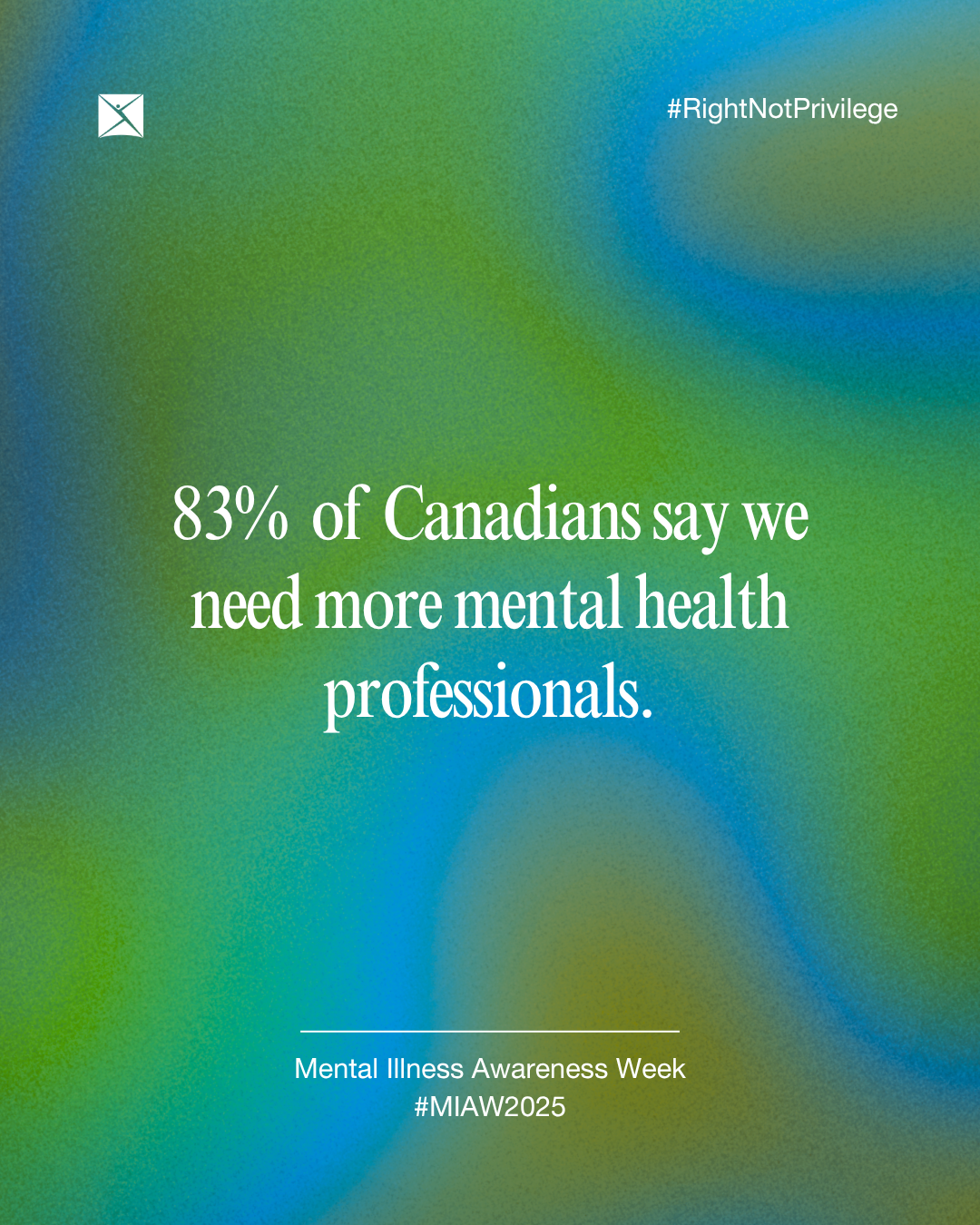
Mental Illness Awareness Week 2025, October 5-11: Mental health care is a right, not a privilege
This Mental Illness Awareness Week, Canadians are shining a light on a system that too often leaves people waiting, struggling or shut out altogether.
Mental Illness Awareness Week is an annual national public education campaign coordinated by the Canadian Alliance on Mental Illness and Mental Health (CAMIMH). This year’s theme, Mental health and substance use health: a right, not a privilege, calls on all leaders and communities to ensure equitable access to care and support for everyone.
As a member of CAMIMH, CMHA supports the vision of a Canada where everyone has timely access to mental health programs, services and supports without barriers. A recent analysis from CMHA National found that nine in 10 Canadians say timely access to mental health care is important. Eighty-three per cent believe we need more professionals to meet the demand. And for young people, cost remains the biggest roadblock, with almost six in 10 Canadians aged 18 to 24 reporting they cannot afford the care they need.
These statistics tell a story that many already know firsthand. People wait on lists that stretch for months, or they face bills they simply cannot cover. In some communities, the services simply do not exist.
Housing tells its own story. People with poor mental health are 50 per cent more likely to live in inadequate housing (housing that fails to meet their needs) than those reporting good mental health. When housing is unstable, mental health is at risk. When mental health declines, so do the chances of finding and keeping housing, highlighting the need to address social determinants of health to benefit mental health.
A human rights perspective
The idea of mental health as a human right is not new. It is already recognized under international human rights law, which affirms every person’s right to the highest attainable standard of physical and mental health. That right goes beyond the absence of illness. It includes the ability to live with dignity and to enjoy well-being in every sense.
Canada has signed on to these commitments yet is not meeting them as gaps remain deep and persistent. People in rural and remote regions often have no services to turn to. Many cannot find culturally safe care. Others are forced to pay out of pocket for therapy and counselling because most services are excluded from the Canada Health Act.
Because the Act does not classify these services as medically necessary, provinces and territories do not receive federal transfers to cover them. Meaning millions either pay privately or go without, with some folks waiting until they are in crisis before reaching out. These realities contradict the promises Canada has made on the world stage and clash with protections in Canadian law.
Our vision
CMHA continues to advocate for a society that embraces and invests in the mental health of all people. This means that every person has access to care, the social foundations that support good mental health, protection from stigma and discrimination and freedom from mistreatment.
Access to mental health care means a system that is properly funded and delivers services that are culturally safe, equitable and based on people’s needs. At its core, it is about treating mental health with the same priority as physical health.
Access to the prerequisites of good mental health means stable housing, income security, education, access to land and nature and other social determinants being recognized and funded as essential. CMHA has long rooted its understanding of mental health in these social determinants and is strengthening partnerships to advance equity.
Protection from discrimination and stigma means that people living with mental illness and substance use problems are fully included in society. It means addressing the legacies of colonialism, racism and systemic inequities in mental health systems (something we just spoke about on this year’s National Day for Truth and Reconciliation – you can read more here). It also means valuing peer support as a sustainable and well-funded complement to medical care.
Freedom from violence, mistreatment and abuse means centering dignity and self-determination in all programs and policies and exploring alternatives to seclusion, restraint and involuntary treatment. This could also be seen as scaling up diversion programs for people with drug offences and ensuring that the voices of people with lived experience shape standards of care.

